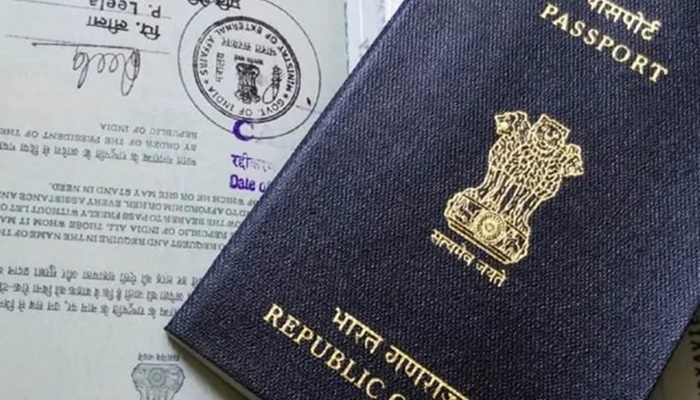In the past few days, the introduction of a four-day work week in Malta has sparked widespread discussion across political, business and social circles. While the idea has generated significant public interest due to its promise of improved work-life balance, it also raises important questions about its feasibility, sustainability and alignment with Malta’s economic realities.
There is no denying that the conversation around the four-day week stems from a genuine and valid aspiration: to create workplaces that are healthier, more balanced and better adapted to modern life. Evidence from other countries suggests that, when implemented correctly, shorter working weeks can lead to happier employees, lower absenteeism and even enhanced productivity. It’s an appealing vision of a more humane and sustainable work culture.
The Malta Chamber of SMEs fully supports efforts to modernise the world of work and improve the well-being of employees. However, translating these ideals into practice requires careful consideration of Malta’s contextual conditions.
Malta’s business landscape
More than 99% of Maltese businesses are SMEs, with 97% being micro-enterprises employing fewer than 10 people. Furthermore, SMEs contribute to 77% of private sector employment. Given this structure, Malta’s economy is fundamentally built on these very small enterprises, which play an indispensable role not only in driving economic activity but also in sustaining social cohesion and community livelihoods. This context needs to be kept in mind when discussing the potential of a four-day week.
For small enterprises, headcount matters, resources are limited, margins are tight and costs are continually rising. Administrative and compliance burdens, from licensing to reporting, are already absorbing valuable time and energy that could otherwise be directed toward productivity and growth.
For micro businesses and the self-employed, the challenges are even more pronounced. In many cases, a single individual or a very small team carries out multiple roles. When one person is unavailable, operations don’t just slow down; they stop altogether. Unlike larger organisations, small businesses cannot easily redistribute workloads across departments or rely on back-up staff.
Moreover, self-employed individuals and micro-entrepreneurs often work more, not less, to keep their operations running smoothly. For them, a four-day week would not bring relief but, rather, add pressure, compressing the same workload into fewer days or requiring even longer hours to maintain standards and commitments.
SME Barometer results
The SME Barometer results for Q3 2025, published by the Malta Chamber of SMEs, paint a clear picture of the pressures businesses are facing and that must be considered within the context of the four-day week discussion. Employers consistently highlight labour shortages as one of their top challenges, forcing many companies to import workers simply to meet demand. This has, in turn, contributed to overpopulation, heavier traffic and mounting infrastructural pressures – all of which directly affect productivity and quality of life for both employers and employees.
Against this backdrop, introducing a blanket four-day working week risks overlooking the reality that many sectors are already struggling to find and retain staff to cover a full five-day operation.
The four-day week proponents tend to quote the Icelandic four-day week experiment as a success story and rightly so. However, we do need to understand that Iceland is over 320 times bigger than Malta, yet, Malta’s population is roughly double that of Iceland, making our island the fourth most densely populated country in the world and the most densely populated EU state.
This demographic and geographic reality has far-reaching implications: sustaining economic activity with shorter working weeks could further increase pressure to import labour and expand our population base – challenges that Malta is already grappling with. This context needs to be kept in mind when discussing the four-day week and the potential need to further grow our population to sustain a four-day week.
Malta’s economic structure: a services-driven economy
Any discussion about changing work patterns must also consider Malta’s strong reliance on the services sector, which accounts for around 80% of the country’s GDP. These sectors, which include retail, hospitality, transport, financial services and other client-facing industries, depend heavily on availability, responsiveness and consistent service delivery. A blanket reduction in working days could therefore have far-reaching implications, affecting business continuity, customer satisfaction and overall national productivity.
Cultural considerations
Another critical factor is workplace culture and mindset. Successful flexible work arrangements rely on trust, accountability, discipline and adaptability, both from employers and employees. Not all businesses have fully embraced more basic concepts like remote work, flexible hours, or digital collaboration and some sectors still rely on traditional structures such as punch clocks and fixed schedules. Within this context, without a cultural shift, introducing a shorter work week risks friction, confusion and lower productivity.
Limited testing and preliminary evidence
It is also worth noting that the global evidence base for the four-day work week remains limited. Most examples cited to support the concept, including those in Iceland, the UK and other European countries, have so far been short- to medium-term pilots. While early results show positive impacts on employee satisfaction and work-life balance, the long-term effects on productivity, competitiveness and business sustainability are still unclear.
Moreover, many of these trials were conducted within larger organisations or public-sector entities, where workloads, budgets and staffing structures differ significantly from Malta’s private SME landscape.
Before committing to such a major shift, Malta should rely on data, not sentiment, ensuring that any reform is guided by comprehensive, context-specific research and piloting.
Looking ahead
The conversation on the future of work is an important one. However, the path forward must be guided by evidence, consultation and an understanding of Malta’s unique business landscape. While well-intentioned, such measures can create false expectations among employees and businesses alike if the operational and economic realities are not fully considered. A genuine partnership between government, employers and employees can ensure that any change improves lives without undermining the sustainability of our enterprises.
While we can learn from international examples, we must recognise that direct imitation may not be feasible or sustainable. Malta has the opportunity to shape its own path toward better work-life balance, tailored to the realities of its economy, workforce and culture.
In my view, to make shorter working weeks feasible, Malta would first need digital transformation across all sectors, supported by government investment and funding schemes designed for SMEs; strong performance management systems; and a culture of trust, accountability, discipline and efficiency.
These are preconditions, not outcomes, of such a reform. Without them, the policy risks creating imbalance between sectors and businesses.
By innovating thoughtfully, piloting carefully and collaborating across sectors, Malta can design reforms that truly benefit both employees and businesses. Let’s innovate, not imitate.
Source – https://timesofmalta.com/article/the-fourday-work-week-debate.1118662




















